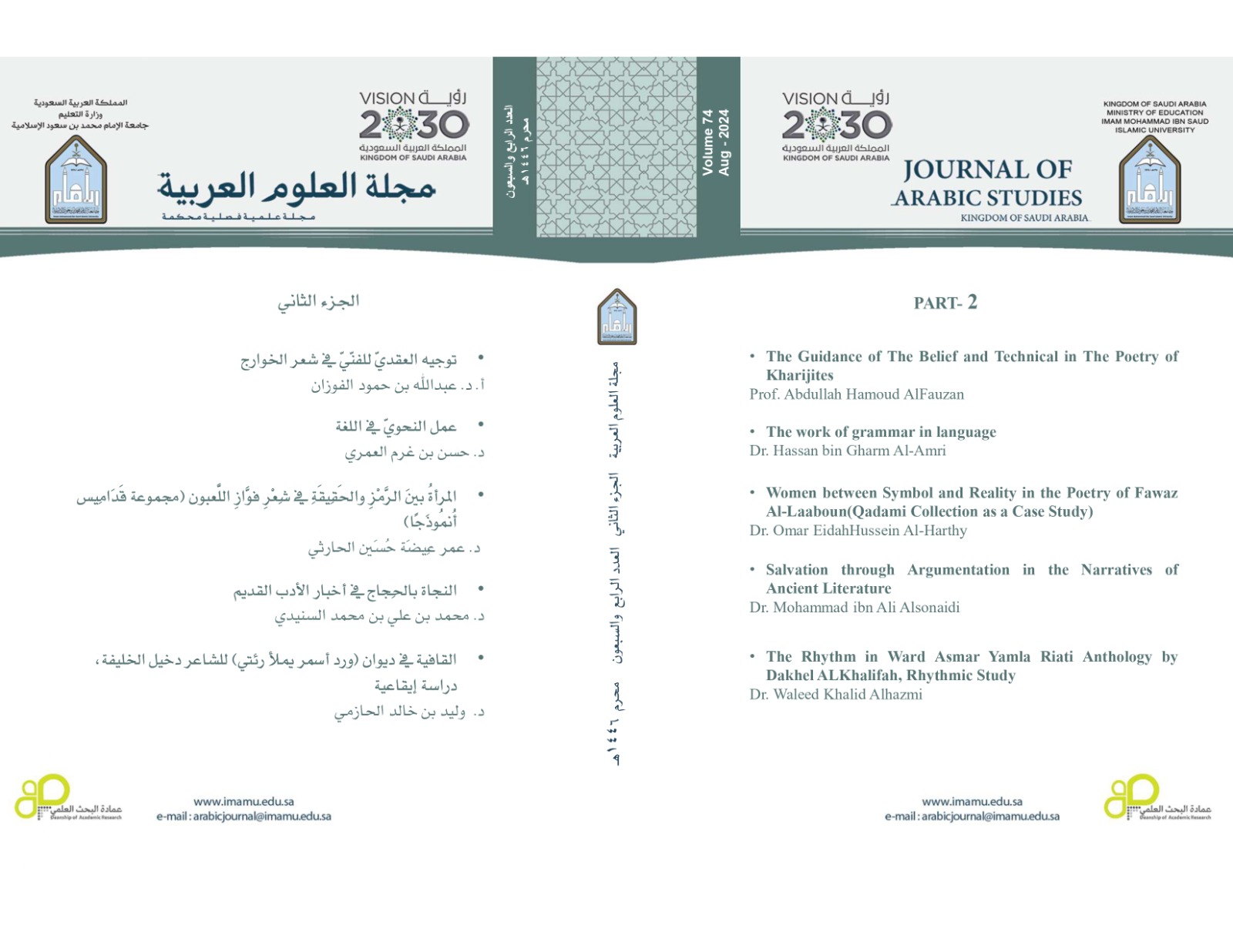النجاة بالحِجاج في أخبار الأدب القديم
Salvation through Argumentation in the Narratives of Ancient Literature
Keywords:
Objection, Fallacy, Persuasion, Imagination, Argumentative Techniques.Abstract
The research aims to study narratives in ancient literature featuring the salvation of a character based on verbal argumentations. Additionally, it seeks to uncover the methods employed in these arguments. The assumption underlying the investigation is that these narratives are categorized within specific workbooks, as indicated by their titles such as (Al-'Afu wa al-I'tizar) by Al-Raqqam Al-Basri (Hayyun Awal Al Qaran Al Rabie), (Al-Faraj Ba'da al-Shiddah) by Al-Tanukhi (d. 384 CE), (Lutf al-Tadbir) by Al-Khatib Al-Iskafi (421 CE), and (Akhbar al-Azkiya) by Ibn al-Jawzi (597 CE). It is presumed that these narratives have chapters within certain books dedicated to gentle discourse, forgiveness, and the avoidance of punishment. Examples include (Uyun al-Akhbar) by Ibn Qutaybah (276 CE), (Al-'Uqd al-Farid) by Ibn Abo Rabbihi (328 CE), and (Nihayat al-Arab fi Funun al-Adab) by Al-Nuwayri (732 CE). The research posits that the arguments in these narratives follow the type of contemporaneous arguments found in logical, dialectical, and rhetorical compositions. Through a comprehensive examination of these sources, instances of dialectical objections, fallacious implications, persuasive discourses, and poetic imaginations were identified. It was observed that some arguments align with the techniques delineated by Chaïm Perelman in his work "The New Rhetoric: A Treatise on Argumentation," which revitalized rhetoric from its Aristotelian roots. Accordingly, the research adopted an argumentative approach grounded in rhetorical conceptualization derived from logic. The study categorizes the research into mental inclinations highlighted by Al-Farabi (339 CE), encompassing dialectics, sophistic, rhetoric, and poetics. It then delves into branches referenced by intellectual and rhetorical sciences, diligently highlighting corresponding argumentative techniques in Perelman's theory. The findings indicate that narrative in Arabic literature is indeed an encyclopedic repository of knowledge and manners, with the arguments endorsed by the sciences of that era contributing to the discourse within these narratives. The research recommends focusing on the argumentative characteristics of literary genres and encouraging literary expressions to align with them by adopting an argumentative approach grounded in rhetorical conceptualization derived from logic




